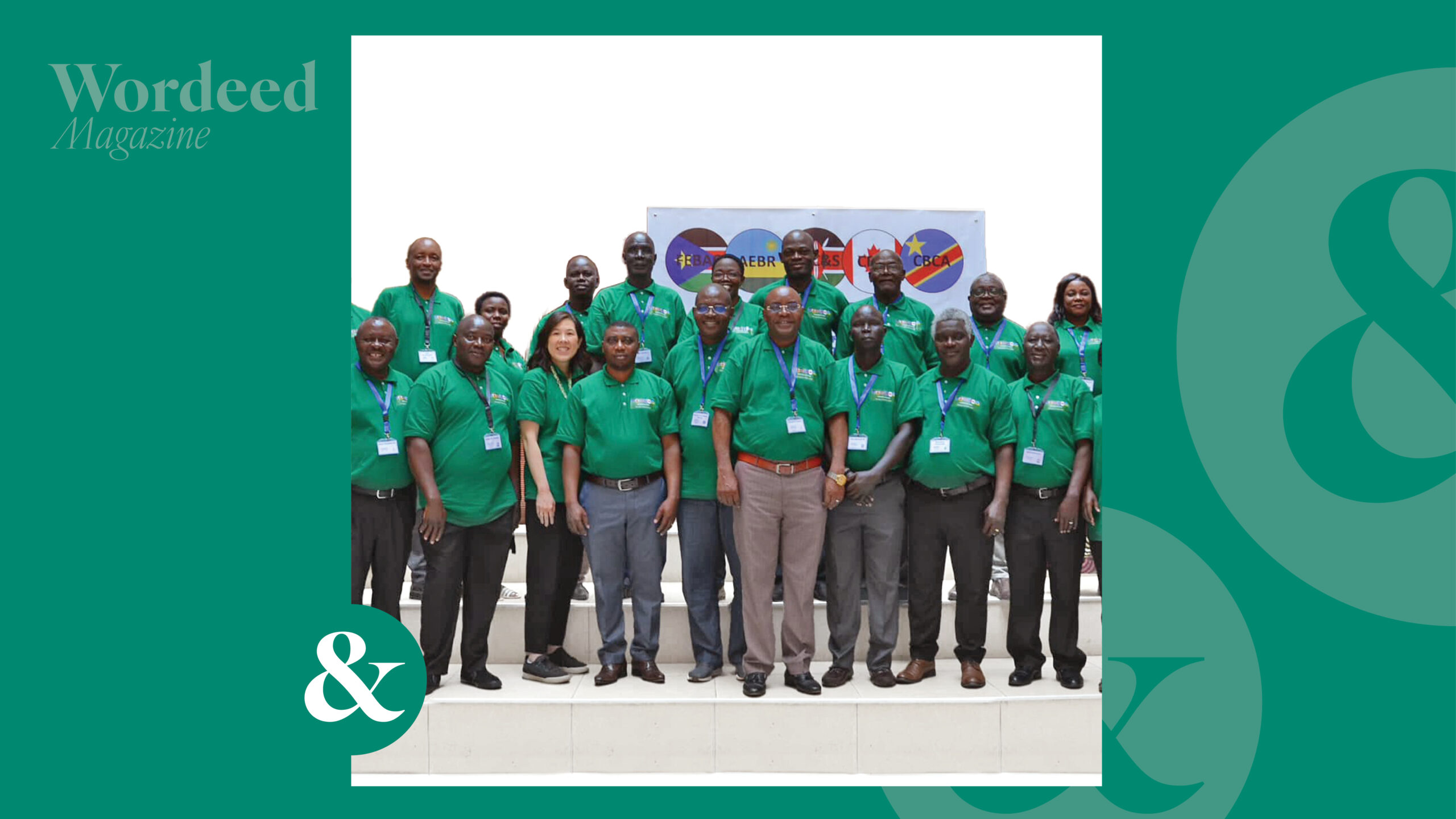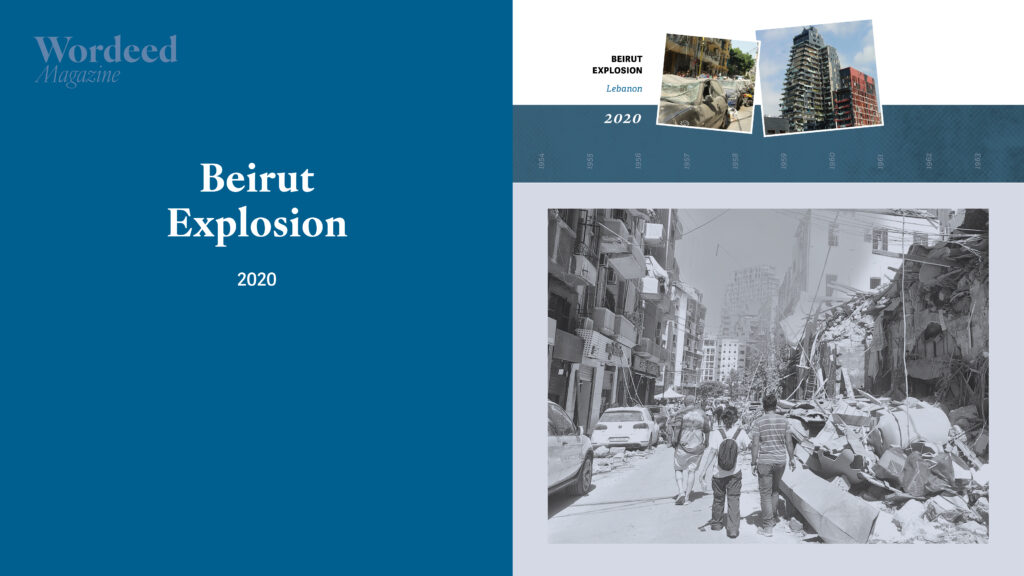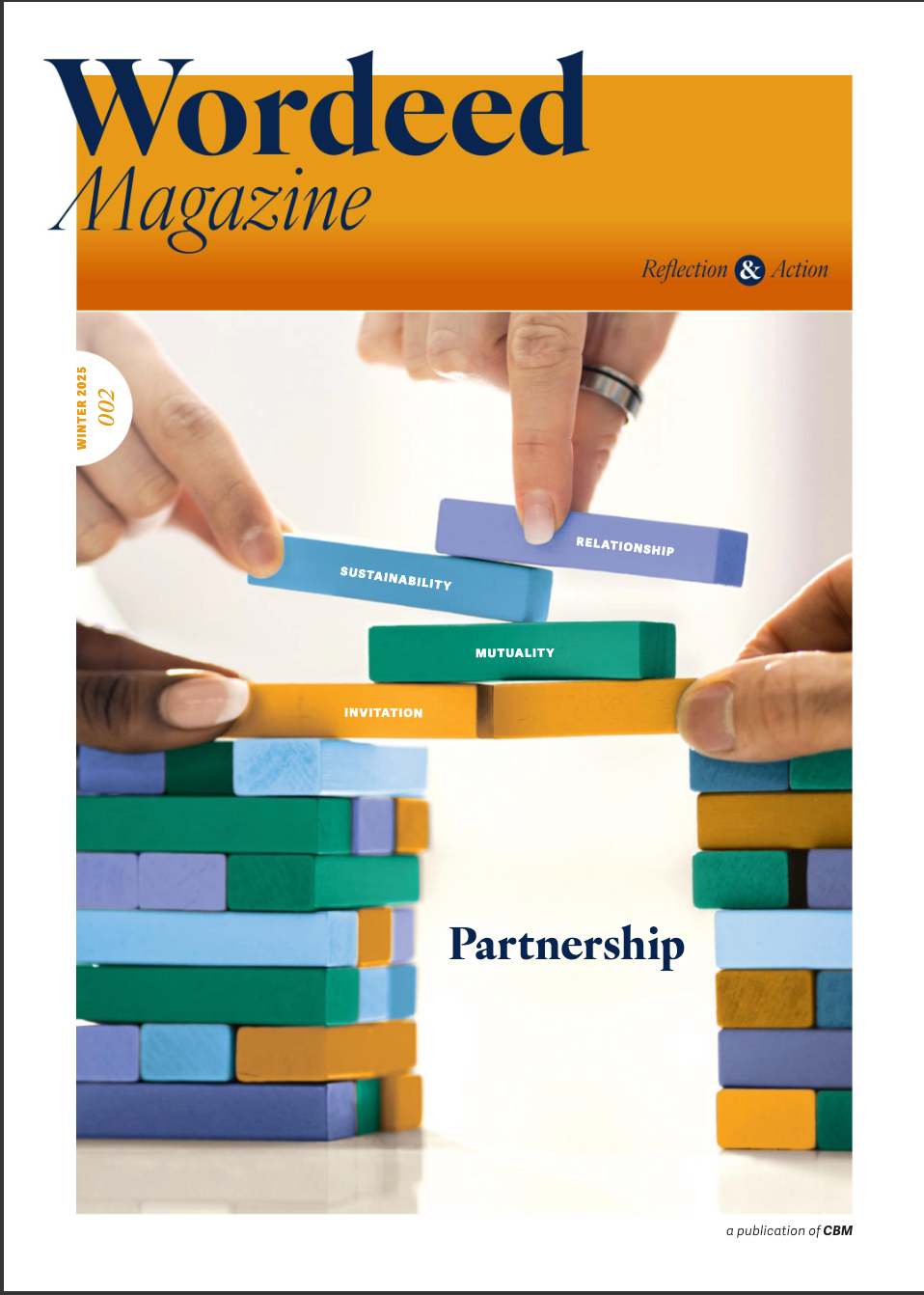– Team Leader, Africa
Canadian Baptist Ministries has a long history of partnerships with African churches in DR Congo, Angola, Kenya, Rwanda, South Sudan, Togo, Liberia, and Central Africa Republic. The recent celebration of 52 years of Partnerships between CBM and the Africa Christian Church and Schools (ACC&S) in Kenya in March 2022 is a testament of these partnerships, highlighting a journey of faith requiring each partner’s commitment, responsibility, ownership, and mutual trust.
It has not always been this way. Partnerships in this region have been — and to an extent, still are — influenced by various binaries: rich vs. poor, strong vs. weak, donor vs. recipient, Global North vs. Global South. Within these binaries, partnership was understood only as bilateral where CBM developed a unique agreement with each single church partner in isolation.
However, since 2009, CBM has been intentionally bringing together African partner churches to discuss and explore a model of partnership that would promote more mutuality, participation, exchange, and ownership. It is obvious that Canadian Baptist churches through CBM have been sharing resources with each individual African partner church. However, through these conversations, it became clear that each African church partner has resources that they can share both with their neighbours and with Canadian churches.
“No one is so rich to not need anything, and no one is so poor to not have anything to offer.”
I like the way my colleague Polisi Kivava puts it: “No one is so rich to not need anything, and no one is so poor to not have anything to offer.” This brings a nuance to the meaning of partnership, that it needs to be two-way, each side should be both a giver and receiver.
What does this look like in practice? Each of the African church partners share resources, supporting one another as neighbours — sisters and brothers in the Master’s Vineyard. CBM joins alongside as a sister organization, sharing resources, and receiving support to serve contextual needs within the Canadian church. This is mutuality in partnership.
A New Philosophy
This new philosophy on partnership was made concrete by the signing of the Gisenyi Covenant in October 2019. The ceremony was held in the town of Gisenyi in the North West of Rwanda, where five leaders from five organizations signed the covenant: Association of Baptist Churches in Rwanda (AEBR), Communauté Baptiste au Centre de l’Afrique (CBCA) in DR Congo, Faith Evangelical Baptist Church (FEBAC) in South Sudan, the Africa Christian Church and Schools (ACC&S), and Canadian Baptist Ministries (CBM). Together, they made this declaration:
“GISENYI DECLARATION: In the coming five-year period, 2019 to 2024, we commit to honoring the Mombasa Memorandum 2009 and the Zanzibar Agreement 2014 by taking to heart the GISENYI AFFIRMATIONS and CHALLENGES. We commit to increasing our mutual engagement as South-to- South partners through prayerful commitment, joint opportunities for learning, resource sharing, peer engagement, and advisory planning alongside CBM’s Africa Team Leader for the glory of God.”
For the past five years, each organization has committed to improving leadership, governance, and financial management by establishing a Peer Organizational Capacity assessment to keep one another accountable. This initiative was conducted by a team member from each partner, including CBM.
Mutual Learning
This covenant has been a framework of mutual learning and crosspollination through exposure visits between African Church leaders and CBM staff, which have included joint training and participation in official ceremonies and functions. CBM has shared resources like the Peace and Reconciliation curriculum and the Integral Mission in the Workplace training materials.
Each organization is learning from and being inspired by one another to grow in professionalism, infrastructure, and maturity. The covenant has extended beyond upper leadership to engage specific departments, too. Peers in the same areas of ministry collaborate to share experience and knowledge — theologians, development teams, youth workers, and women’s ministry coordinators have established forums to support one another spiritually and practically.
This spirit of mutuality and resulting collective impact has attracted two new Baptist churches from the region to join the covenant as partners in this shared mission: Communauté des Églises Baptistes du Congo Est (CEBCE) and the Association des Églises Baptistes Évangéliques de la Centrafrique (AEBEC).
Past Reflections, Future Plans
After five years, the signing members of the Gisenyi Covenant (2019-2024) affirmed that the work together in the past years has:
- Built our skills and capacities.
- Strengthened our organizations through peer capacity assessments.
- Broadened our understanding and practice of mission and partnership.
- Deepened our relationships and collaboration.
- Expanded to include multiple working forums, focusing on strategic priorities.
- Demonstrated our need to increase a sense of ownership in our joint ministries.
- Benefited from sharing expertise and resources with one another.
In the celebration ceremonies in July 2024, the signing members recommitted to mutuality in partnership for another five years. Together they signed the Nairobi Accord (2025- 2029). They challenged each another toward the following goals for this period:
- To strengthen our partnership through collaboration, effective communication, sharing expertise and resources.
- To stand with one another in prayer, mutual respect, and support.
- To increase a sense of ownership through participation as equal partners.
- To prioritize capacity building, leading to greater resilience, individually and collectively.
We are siblings on this journey, working together equally to advance God’s Kingdom around the globe.
Redefining our understanding of mutuality in partnership brings us closer in unity of mission. We are siblings on this journey, working together equally to advance God’s Kingdom around the globe. As we continue this spirit-led journey — edifying one another by sharing our unique resources — we look ahead with hope at how God will use this example of mutuality as a powerful witness of collaboration and faith.




